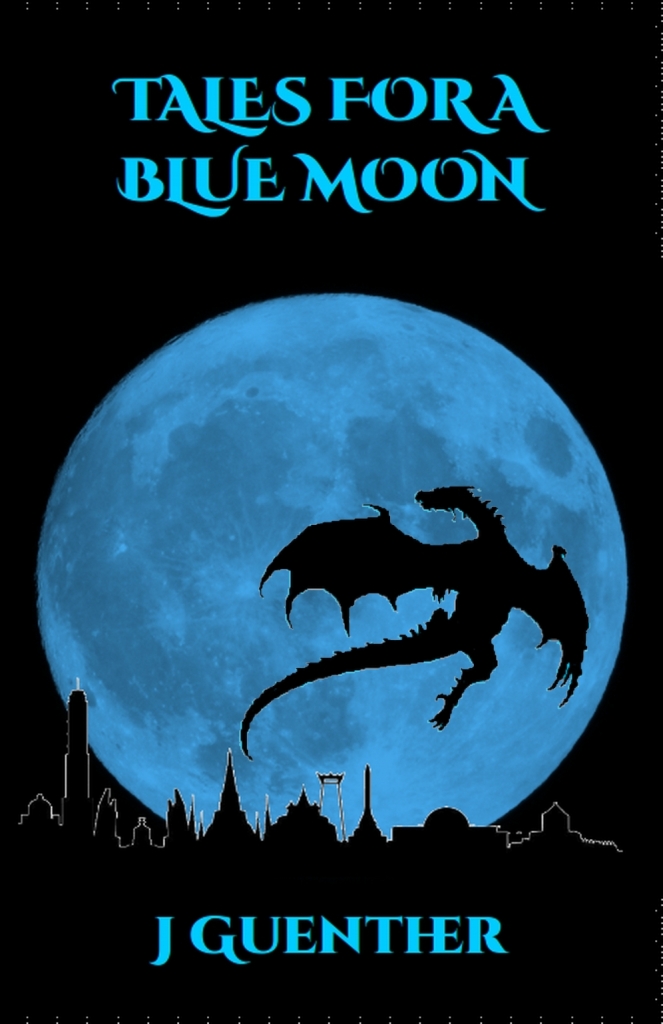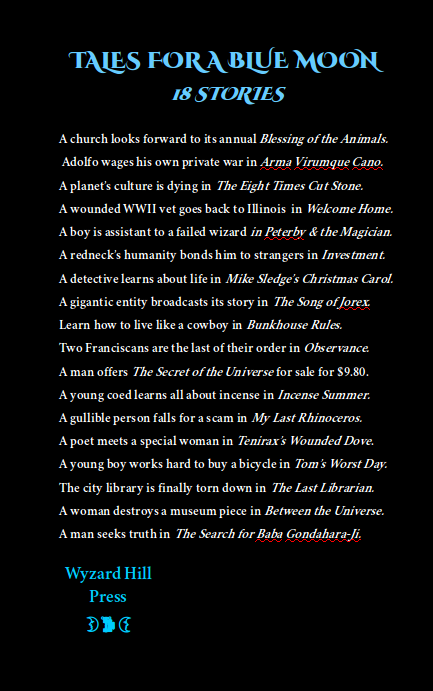Notes for a homily delivered on Feb 11, 2012*
Prelude quote: “Out of darkness shine the stars.” –J. G. Collins
Opening Hymn: I Seek the Spirit of the Child
Sermon Title: Theodicy: Explaining The Problem of Evil
Unison reading:
Saint Teresa’s Bookmark
Let nothing disturb thee,
let nothing affright thee;
all things are passing;
God never changeth.
Patient endurance
attaineth all things.
Who God possesseth
in nothing is wanting;
alone God sufficeth.
Job 38:4-7 (NIV1984)
Where were you when I laid the earth’s foundation?
Tell me, if you understand.
Who marked off its dimensions?
Surely you know!
Who stretched a measuring line across it?
On what were its footings set, or who laid its cornerstone—
While the morning stars sang together
and all the angels shouted for joy?
John 9:1-7 (NASB)
As He passed by, He saw a man blind from birth. And His disciples asked Him, “Rabbi, who sinned, this man or his parents, that he would be born blind?”
Jesus answered, “It was neither that this man sinned, nor his parents; but it was so that the works of God might be displayed in him. We must work the works of Him who sent Me as long as it is day; night is coming when no one can work. While I am in the world, I am the Light of the world.”
When He had said this, He spat on the ground, and made clay of the spittle, and applied the clay to his eyes, and said to him, “Go, wash in the pool of Siloam” (which is translated, Sent). So he went away and washed, and came back seeing.
Swedenborg, True Christian Religion, Ch VIII: FREE WILL
(abbreviated from the Chadwick Translation)
The fact that two trees, one of Life and the other of the Knowledge of Good and Evil, were put in the Garden of Eden, means that man was given free will in spiritual matters…Without free will in spiritual matters, man would have no means of establishing a mutual link with the Lord…
If people did not have free will in spiritual matters, everyone throughout the world could in the course of a single day have been brought to believe in the Lord. But this would be impossible, because what a person does not accept of his own free will does not last…
Sermon: The Problem of Evil
Today I’m going to talk about a famous puzzle, something that has perplexed philosophers for centuries. But first, to get into a philosophical mood, let’s hear about some famous philosophers:
☻There are three philosophers in a bar. The first is Rene Descartes, the Rationalist famous for saying, “I think, therefore I am.” He asks the other two, “What is ze greatest invention ever conceived? As a believer in Science, I would say ze telescope, because it has increased astronomers’ knowledge of ze heavens a hundred-fold.”
William James, the Pragmatist, disagrees, saying: “The printing press has advanced the knowledge of not just a few scientists, but of all mankind. The printing press is the greatest invention.”
Nikolai Bukharin, the Marxist, jumps up and says: “Nyet! Thermos bottle is greatest invention! Definitely is Thermos bottle.”
The others look at him in surprise and ask, “Why is the Thermos bottle the greatest invention?”
Bukharin explains: “If you want it keep something hot, is keep it hot. If you want it keep something cold, is keep it cold. Thermos bottle can read people’s minds!”
☻☻There are three French philosophers in a café: Jacques Derrida, Jean-Paul Sartre, and again Rene Descartes, from the previous joke. The waitress asks if they’d like coffee.
Derrida, the Deconstructionist, tells her, “Your question is without meaning. It is impossible to define coffee without resorting to other words! Then you’d have to define those words, and so on, in an endless process.”
The waitress says, “No coffee for you!” She turns to Sartre, the Existentialist, who says:
”Yes, I’d like a cup of coffee, please, with no cream.”
The waitress says, “I’m sorry, M. Sartre, but we’re out of cream.”
Sartre says, “All right, then, I’ll have it without milk.”
Finally, she asks Rene Descartes, “Would you like coffee, too?”
Decartes says, “I think not.” And disappears.
I see that mention of philosophy has caused some of your eyes to glaze over. Or maybe it was that last joke. Don’t worry; I plan to keep this as simple as possible. I am not a philosopher. Philosophers are people who attend college for many years to study the deep questions of life. They are then ready to ask other people the more practical question: “Do you want fries with that?”
Thousands of years ago, someone wrote a story about a good and pious man whose life takes a terrible downturn. This man, whose name is Job, suddenly loses his wealth, his family, and his health. He patiently endures all these things, but eventually asks God what he has done to deserve such misery.
The conundrum facing Job is “The Problem of Evil.” The ten second version goes like this: If God is all good, all knowing and all powerful, why do good people suffer? Why do innocent children die? Why are multitudes killed in natural disasters?
This is not just a philosophical paradox, but a stumbling block to faith for many people. That is why The Problem of Evil has been a frequent literary theme, from ancient works like the Book of Job, to Milton’s poetry, to The Bridge of San Luis Rey, and, more recently, Harold Kushner’s When Bad Things Happen to Good People, and its inevitable flip side, When Good Things Happen to Bad People, by Martin Levinson.
Philosophers have tried to resolve this paradox via studies called theodicy. The three oldest theodical explanations blame Evil on Sin:
1. First, ancient peoples believed misfortunes were punishments sent by God for one’s sins. In the Book of Job, his friends tell him that since God punishes the wicked, Job must be wicked. Job doesn’t think so, and wants to know what he’s done wrong. But instead of answering Job, God asks him a long list of questions, a very few of which were in the first reading today. [Book of Job, first section]
2. Next, according to Jewish patrimonial belief and custom, we can be punished for the sins of our parents, too, as in the second reading: “… who sinned, this man or his parents, that he was born blind?”
3. The third and last sin-based solution says we are being punished for the Original Sin of Adam, which we have inherited.
Those first three theories are not comforting, and they’re based on concepts of punishment that are not part of Swedenborgian doctrine. Now let’s look at three ideas that aren’t about retribution, but about God not intervening to protect us.
4. Theory Number Four says that the world is a place where we are ‘refined’ by suffering. This may have some genuine merit. Many people use acceptance of their suffering to grow in wisdom, patience, and closeness to God. As Scott Peck says, “Problems call forth our courage and our wisdom.”
I don’t see this as a universal answer. It’s unlikely that anyone feels “refined” after losing a loved one. Many find their faith stressed as a result, particularly if they have prayed earnestly for a positive outcome. For one well-known example, the English author, C. S. Lewis, drifted towards agnosticism after the age of 10, when his mother died despite his faith and prayers.
5. The fifth proposed theory is that God knows we will reach Him safely despite our temporary troubles here, which are nothing compared to the joy of union with Him in Heaven. God has no sense of urgency. This is a valid concept, but, lacking God’s perfect foresight, it is very hard for us to retain that philosophical detachment on a daily basis.
6. The sixth theory says that we can’t fully appreciate God’s presence until we have experienced his total absence. I’m sure there’s a lot of truth in that, as well. Having undergone many trials before reaching God, our happiness will be that much greater as a consequence. I find this helpful intellectually, but not emotionally, especially when I’m right in the middle of something really distressing.
Those, then, are six of the major theories regarding The Problem of Evil. There are more modern schools of thought. Thirty years ago, there was a movie called Time Bandits, in which a boy named Kevin asks the Supreme Being, “Why is there evil?” Unlike the God of Job, the God of Kevin gives him a straight answer: “I think it has something to do with free will.” Not a bad answer, even if it was not God, but a screenwriter who said it, and it is, in fact, free will that is the basis for modern theodicy.
Let’s start from the proposition that God loves us and wants us to love Him. Real love can’t exist without freedom of choice, so free will is an absolute necessity in our journey to God, as was noted in the third reading, the Swedenborg quotation. God will not do anything to interfere with anyone’s free will, except as I’ll mention later.
It’s obvious that evil is often a consequence of people’s free will. But what about natural disasters? Surely God’s intervention in such cases wouldn’t interfere with anyone’s free will. So why does God not prevent sickness, earthquakes, and so forth?
7. A likely answer is that God’s Will, like God, is infinite. If God’s Will were sufficiently present to intervene in natural disasters, It would also interfere with our freedom of choice. Our human will would be overpowered like an ice cube in a blast furnace.
Human free will and God’s Will can’t exist in the same space at the same time, so God, being all-powerful, has created for us a special place, a bubble in the form of an expanding hyper-toroid 28 billion light years in diameter, where His Will doesn’t ordinarily reach.
Let’s look at this in conjunction with the Lord’s Prayer. Jesus tells us to pray: “…Thy Will be done on Earth as it is in Heaven….”
This recognizes Heaven and Earth as separate places, and implies that God’s Will doesn’t auto-matically prevail here, but is something we need to request.
Further down: “…Lead us not into temptation, but deliver us from Evil.” We can ask God daily to overrule some of our free will.
How can the Will of God be done here without being present? I said I’d keep this simple*, so let’s look only at the obvious way: angels are sent here with knowledge of God’s Will and power to carry it out, as in Psalm 91: “…He shall give His angels charge over thee to keep thee in all thy ways…”
Now, what does all this mean in a practical, everyday, do-you-want-fries-with-that sense?
☺Remember that God hears our prayers** and that nothing happens here that God is not aware of: From Matthew 6: “…Your Father knows what you need before you ask.” And see Matthew 10: “Aren’t two sparrows sold for only a penny? But your Father knows when any one of them falls to the ground….”
☺Remember that God can turn things that seem bad to us now into something better in the long run.
☺Remember the lesson of Job: When we don’t know God’s will for us, or why things are the way they are, we sometimes have to just move forward, doing the best we know how, on raw faith alone. There are times to just be patient and let the “works of God be displayed” in us, without knowing what they are.
☺Remember also Matthew 18, “Amen I say to you, unless you be converted, and become as little children, you shall not enter into the kingdom of heaven.” Little children have almost no self-will, and self-will is the opposite of spirituality. Learn to put self-will aside as much as you reasonably can.
☺Remember to say the Lord’s Prayer every day, as Jesus tells us in Matthew, “This, then, is how you should pray…” Swedenborg says that the Our Father is a very deep prayer. Explore it.
That’s it for today. I hope these thoughts will be helpful to you. Thank you for the opportunity to serve this community.
* PS: The absence of God’s Will here on Earth doesn’t necessarily entail his total absence from our universe. Jesus’s statement [John 16:7] “Unless I go away, the Advocate will not come to you; but if I go, I will send him to you” may indicate that God’s will is not equally distributed among the Trinity. There are other possibilities, involving dimensionality and the notion of conservation of extent, that I’ve not gone into here.

Closing Hymn: Eternal Father Strong to Save.
** Our prayers may be heard by God directly or they may be relayed by angels. [Genesis 28:10-22] “He [Jacob] had a dream in which he saw a stairway resting on the earth, with its top reaching to heaven, and the angels of God were ascending and descending on it.” (I wouldn’t rule out flying saucers as angelic rapid transit.)







